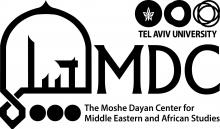The Islamic Revolution of 1979 was a major turning point in the modern history of Iran, with reverberations far beyond its borders. Twenty-eight years on, the new regime is still searching for an appropriate approach to cope with the challenge of governance while it contends with domestic disenchantment, perpetual struggle for power between competing tendencies and grave regional and international challenges. The Islamic Revolution led to a dramatic change in Iran's foreign outlook and its international relations. The pragmatic policy does not suggest that Iran refrained from supporting militant groups outside the country as a rule, rather that it calculates its steps and weighs the "costs." Since the war in Lebanon, the key developments in Iran have been the twin elections of the City and Village Councils and of the Council of Experts and the United Nations Security Council resolution to impose sanctions on Iran's nuclear and missile program.
Iran's Regional Policy: Between Radicalism and Pragmatism (JIA)
Senior Researcher Professor David Menashri analyzes the factors shaping Iran's regional policy in the Journal of International Affairs
External reference








